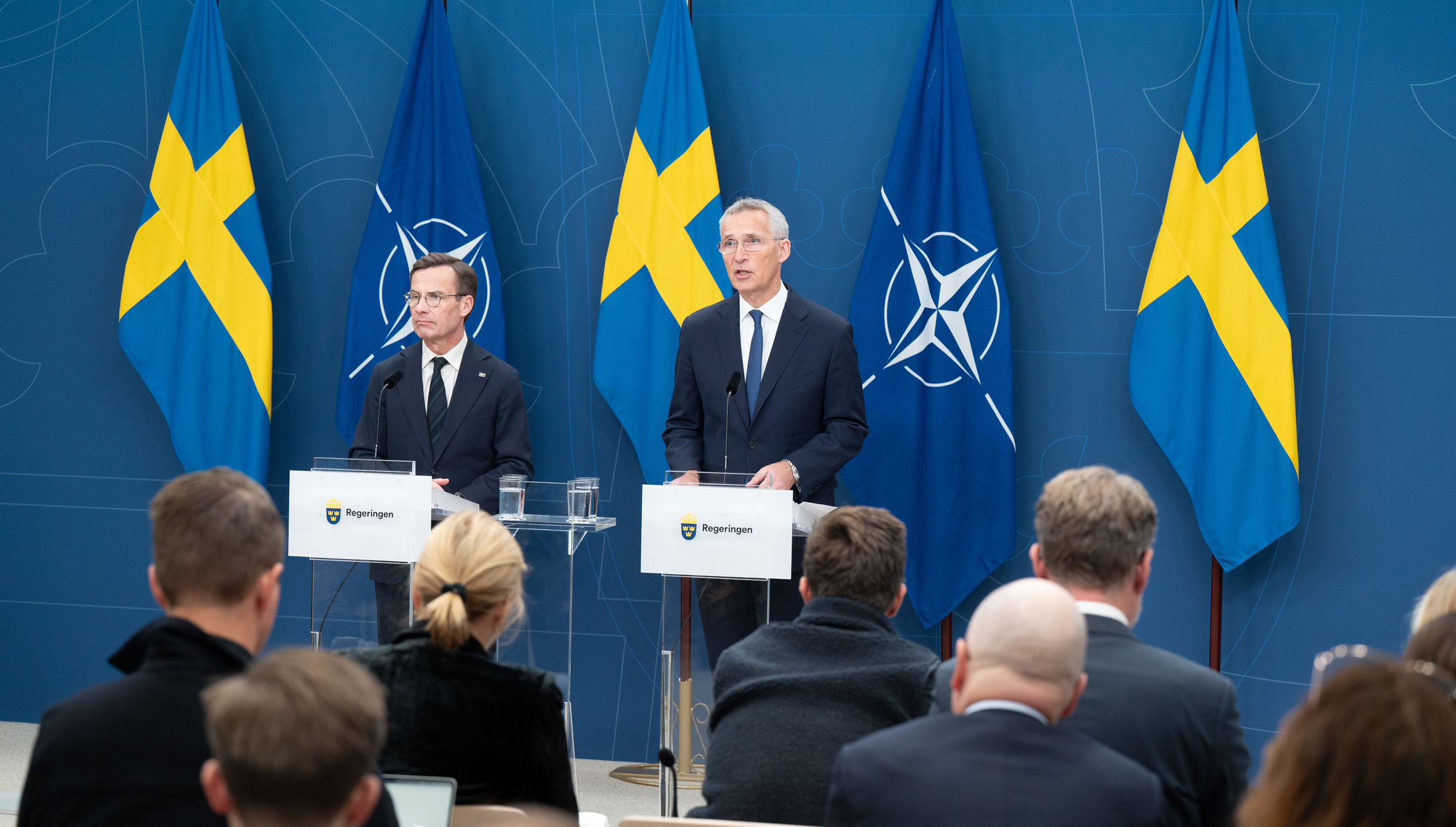NATO predicts Turkey delivering ‘speedy’ ratification for Sweden’s alliance entry – Breaking Defense
Global, Naval Warfare

NATO Secretary General Jens Stoltenberg and Prime Minister of Sweden Ulf Kristersson address a press conference in Stockholm (NATO)
BELFAST — NATO’s top official expects Turkey’s parliament to swiftly ratify Sweden’s alliance membership after it received an accession protocol from President Recep Tayyip Erdogan earlier this week.
The decision brings the Scandinavian country a crucial step closer to joining the alliance as its 32nd ally, as Turkey and Hungary are the only two members who have yet to ratify Stockholm’s alliance membership.
“Sweden’s membership will make NATO stronger,” said Jens Stoltenberg, NATO Secretary General, during a Tuesday meeting with Swedish Prime Minister Ulf Kristersson. “Sweden is fully ready to join NATO. The time has come. Following the submission of the ratification documents, I now count on a speedy ratification by the Turkish parliament.”
Sweden applied for NATO membership alongside Finland in May 2022, in response to Russia’s invasion of Ukraine, but while Finland gained entry in April 2023, Sweden’s application has been delayed because of Turkey accusing it of not doing enough to curb crimes carried out by Kurdistan Workers’ Party (PKK) militants or extradite individuals it considers terrorists.
At Turkey’s behest, Sweden has amended its constitution, introduced stricter anti-terror laws, expanded counter-terrorism activities and lifted an arms export embargo with Ankara.
Despite those actions, Erdogan controversially went so far as to call for Turkey to receive European Union membership in exchange for ratifying Sweden’s NATO entry, only to drop the plan less than a day later and agree to let Stockholm’s application proceed.
“No other ally has suffered more terrorist attacks than Turkey and I am glad we have been able to address Turkey’s legitimate security concerns in a way that enables Sweden’s membership to move forward,” said Stoltenberg. “I look forward to welcoming Sweden as a full NATO ally in the very near future.”
He said that Sweden continues to integrate “more deeply” with the alliance, which has been shaped “in the last few days” by the UK’s HMS Queen Elizabeth aircraft carrier visiting Gothenburg and “US bombers” training with “Swedish jets.”
Last year, the Swedish Armed Forces, US Bomber Task Force and the Norwegian Air Force completed a joint training exercise that saw three GBU-31 live bombs dropped by B-52 Stratofortress aircraft, neutralizing targets within the Vidsel training area in northern Sweden.
On other matters, Stoltenberg said he and Kristersson discussed “recent damage to critical undersea infrastructure in the Baltic Sea,” linked to a telecommunications cable running between Sweden and Estonia and a Finnish-Estonian natural gas pipeline incident.
Kristersson called the damage to the telecommunications cable “purposeful,” after Swedish divers searched the seabed.
“We will not be more precise than that, as of today at least,” he added. “We will conclude the investigation…and we’ll come back with our conclusions.”
Similarly, Stoltenberg refused to speculate on who or what might be behind the damage or confirm “whether it was intentional or not.”
NATO is developing closer cooperation with private companies who typically own critical undersea infrastructure, in an attempt to “increase the threshold for attacks,” added Stoltenberg.
[hubspot-form portalid=’2097098′ formid=’5b7a7013-dd8f-4af1-950e-1c6aa0f253c1′]


